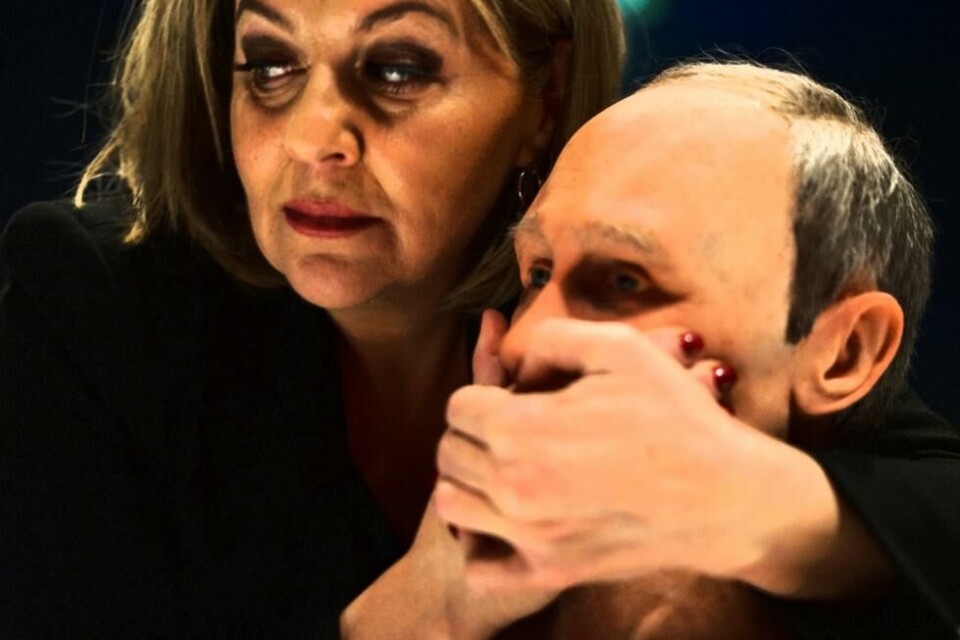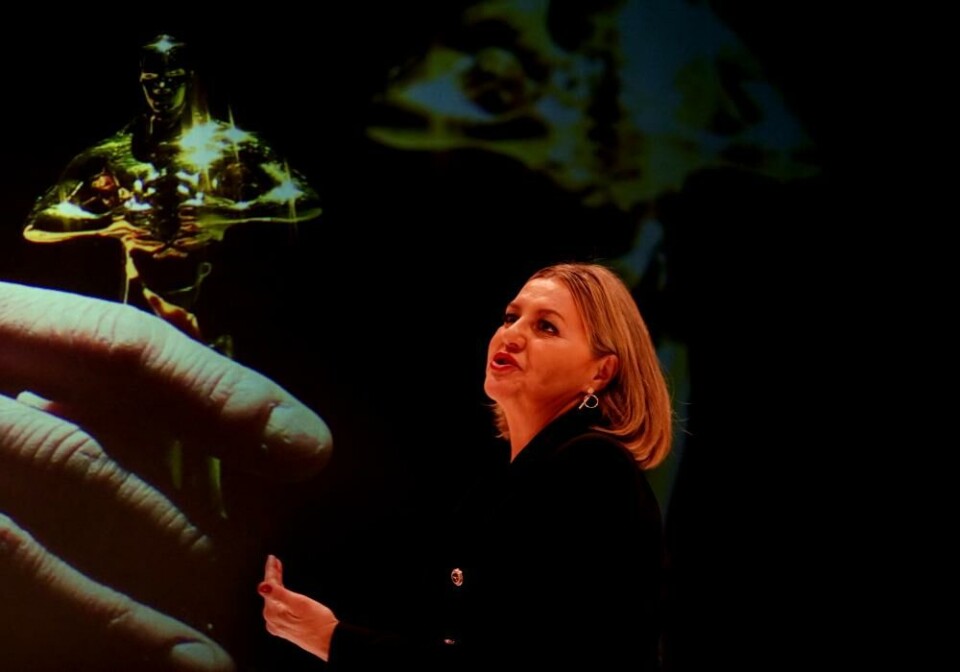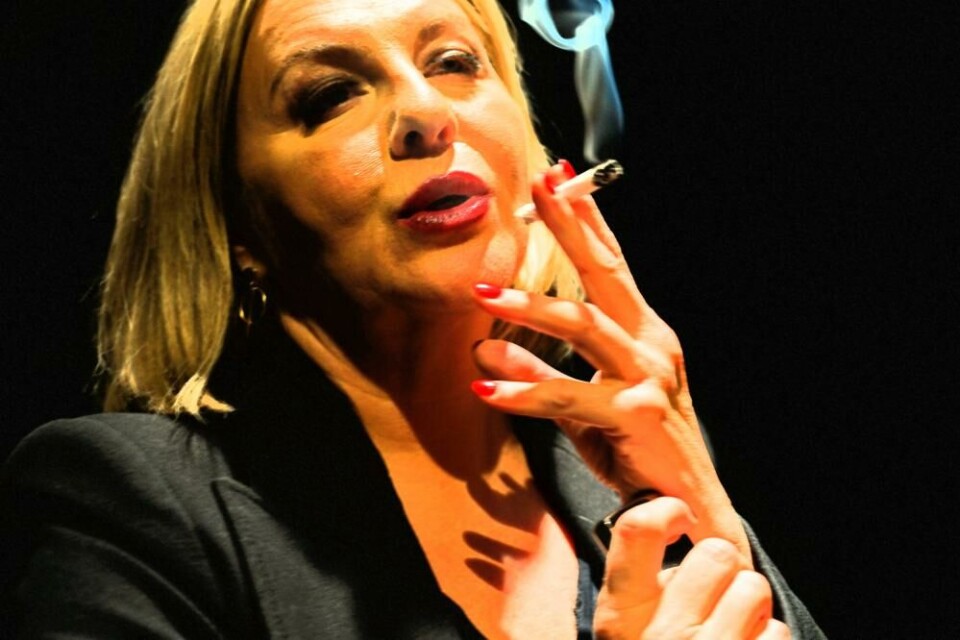
Double agents, double standards
In her skillful and delicious monologue «My Dinner with Putin», Kate Pendry unpacks the manifold ways in which we ethically reason ourselves into making wrong decisions.
You don’t need to descend far into the well of arts to find yourself in a situation where you are ethically challenged.
And isn’t that the purpose of the arts after all? From junkies masturbating in front of the camera to forcefully insulting audience members, to sharing the private lives of ex-lovers: artists have done it all. But what if the ethical dilemma comes to the artists themselves – uninvited and out of control? Can you say that you are fighting climate change and at the same time accept grants that can be traced back to the oil industry? Can you call yourself a feminist and work for a director accused of sexual harassment? What if you are an artist of colour invited to make a performance in a prestigious museum with a colonial history?
Kate Pendry’s monologue My Dinner with Putin shares with its audience a striking story that shows how our dreams and desires narrate us in and out of making difficult decisions. ‘You never know with Russians’ Pendry says to the camera backstage, which at this moment is the Russian Embassy in Oslo before she’s due to fly to Moscow. It’s February 2022, just a couple of days before Russia will invade Ukraine and begin a gruesome war, ushering in a new era of geopolitical tension and fear. Meanwhile, Pendry, who has always dreamt of becoming a screen actress, walks into a fancy hotel near the Red Square (‘high class but smells of new money’), not knowing that a couple of hours later she will be face-to-face with one of the most powerful men on earth, and one who will be responsible for this war.
A triple trope
‘I always wanted to be an actress,’ we hear Pendry say from the dark, before gradually appearing in front of us. With her warm and balmy voice, Pendry evokes the phantoms of legendary actresses – Rita Hayworth, Lauren Bacall, Marilyn Monroe, Catherine DeNeuve – her hands reaching into thin air as if touching their irresistible faces, now long gone. But theatre isn’t film and Pendry so badly wants to appear on screen to ‘do a movie as they say in Hollywood’. Then, unexpectedly, the opportunity finally arrives: Nikita Mikhalkov, a Russian film director with several prestigious awards on his track record, offers Pendry a role. And not just any role. Her character gets to: (1) cry, (2) laugh and (3) be desired, or at least somewhat. It’s like a triple trope. And as if that isn’t enough, Pendry learns that Robert De Niro and Anthony Hopkins (OF ALL PEOPLE), will also be starring. Unfortunately, there is also this: Nikita Mikhalkov is BFF with Vladimir Putin. Damn.
Oscar dummy

Pendry’s craftswomanship, both as a writer and actor, is remarkable to say the least. Her voice, which reminds me at times of Laurie Anderson (albeit a British version), weaves tones of fragility, humour and criticism into a solid narrative that pulls us through tensions and climaxes as if we were watching a movie for real. Even though I am quite confident that Pendry could pull off this monologue just by sitting on a chair, I appreciated how the additional staging by Mads Sjøgård Pettersen supports Pendry’s delivery by always returning to the text itself.
Just like the gradual appearance of Pendry on stage in the beginning, later on we see the outlines of a giant Oscar taking shape on a big screen. It takes me a while to realise that the image is in fact a live projection of a plastic Oscar dummy filmed on stage (the plastic ghost of Pendry’s dreams) and that the person who has been sitting on a chair off stage for a while now, will become Pendry’s camera man.
I’m usually disappointed when a camera appears on a stage (I didn’t come here to watch another screen!), but in the case of My Dinner with Putin, the motivation makes sense. The claim that ‘theatre is not film’ becomes quite literal when Pendry herself appears on the backdrop. Her face now filling the whole screen, I almost can’t believe these two people are one and the same person. It reminds me of how intrusively detailed, shallow and voyeuristic the nature of the filmed image is. In the same way, I also cannot believe that Kate Pendry, an artist known for her politically sharp work as a social commentator, is the same Kate Pendry from the monologue, a figure whose vanities and insecurities overshadow her agency, preventing her from taking a political stance. My Dinner with Putin is advertised as ‘a true story’, but somewhere in there I’m still hoping it’s not.
Editing rooms
‘I’ve never believed you can separate the art from the artist but lots of people say you can and must or at least turn a blind eye otherwise you’d never work with anyone in the industry (…)’ What makes My Dinner with Putin so recognisable is that it unpacks in a most humorous way our inner turmoil when we ethically reason ourselves into a ‘wrong’ decision. It shows us how we come up with the strangest negative comparisons, the silliest justifications and how we see the faults in others while holding on to our meaningless, wishful thoughts.
Film teaches us that if not now, we can always fix and manipulate the story later. In our own psychic editing rooms, we cut and paste where needed and make the world fit our needs. Maybe that’s one of the reasons why Hitler loved movies. In the end, it is all about the stories we tell ourselves, and I wonder what story Putin tells himself at night when he lays down his head on the Kremlin pillows.
‘This is how we were raised’

At some point, Pendry describes Mikhalov’s female assistants during a Skype-meeting. They are young, serious, intelligent – they seem cool. Pendry thinks to herself: ‘I wonder what their story is’ and adds, slowly: ‘what choices do they have?’ It makes me think of something a Russian soldier said to a New York Times journalist. After explaining that he had already lost several friends and felt critical of the war, he said: ‘This is how we were raised. We grew up in our country understanding that it doesn’t matter how our country treats us. Maybe this is bad, maybe this is good. Maybe there are things we do not like about our government, but when a situation like this arises we get up and go.’
When the audience jumps up from their seats to give Pendry a standing ovation, I am with them. Even though ‘an analysis of the media’s fetishization of war and how the West reacted to the invasion of Ukraine’ (as mentioned in the program text) is entirely absent, I feel we got to a place from where we can continue. Like double agents with double standards, Pendry will go to Moscow to do her job, we will be seduced by the magic of a good story and the war, by all appearances, will go on. I can’t wait for the sequel.
(Published 22.03.2023)
